Full Guide to Rosemary

Quick links to save you time
What is Rosemary?
Rosemary (Rosmarinus officinalis) is a perennial herb originating from the Mediterranean. It belongs to the mint family Lamiaceae, which includes over 7,000 species.
The plant has fragrant, needle-like leaves and white, pink, purple, or blue flowers. The word “Rosemary” originates from the Latin “ros,” which means “dew,” and “marinus,” which translates to “sea” – hence, “dew of the sea.”
Rosemary leaves frequently serve as a culinary ingredient, enhancing various dishes’ flavor. Additionally, people value them for their medicinal benefits.

What is Rosemary good for?
Culinary Uses
Rosemary is a popular seasoning in various dishes, such as soups, casseroles, salads, and stews. It pairs well with chicken, poultry, game, lamb, pork, steaks, and fish, especially oily fish like salmon, mackerel, sardines, trout, etc. Rosemary also goes well with grains, mushrooms, onions, peas, potatoes, and spinach. You can use it either fresh or dried. You can also consume its leaves directly or infuse them in oil. It is also used in bread and baked goods like focaccia, gnocchi, and scones.
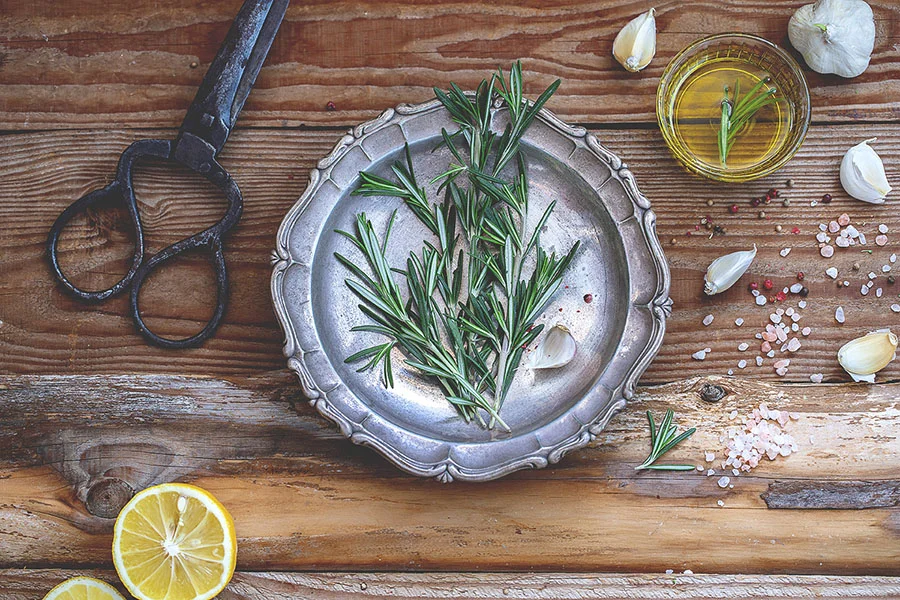
10 Rosemary Ideas for Home Decor
- Rosemary Wall Art: Use dried rosemary sprigs to craft a piece of wall art. Design them into an appealing pattern or shape and frame the arrangement.
- Rosemary Garland: Weave fresh rosemary sprigs into a lovely garland, ideal for draping over a mantel or staircase.
- Rosemary Topiary: Start with a small rosemary plant and trim it into a cone shape. Enhance its look with a ribbon or bow at the top.
- Rosemary Place Cards: Craft place cards for dinner guests by tying a name tag onto small rosemary sprigs.
- Rosemary Infused Candles: Immerse fresh rosemary sprigs in melted wax for a decorative and aromatic candle.
- Rosemary Sachets: Fill petite fabric pouches with dried rosemary, placing them in drawers or closets for a refreshing scent.
- Rosemary Wreath Ornaments: Design miniature wreaths with fresh rosemary sprigs and ribbons. These can adorn a Christmas tree or amplify a gift’s presentation.
- Rosemary Centerpieces: Craft a table centerpiece with fresh rosemary sprigs complemented by candles, flowers, or fruit for added flair.
- Rosemary Gift Wrap: Enhance gift wrapping by tying fresh rosemary sprigs to the package or ribbon, adding aroma and aesthetics.
- Rosemary Wreath: Fashion a full-sized wreath using fresh rosemary sprigs. Integrate elements like pinecones, berries, or ribbon for festive flair.

Credit Alberto Conde, Kitchen In The Med
Rosemary Benefits and Therapeutic Effects
Rosemary is full of antioxidants and anti-inflammatory agents. It has the potential to strengthen the immune system and enhance blood flow. Some of the potential benefits and therapeutic effects of Rosemary include:
Cognitive Function and Memory
Traditionally, people have linked Rosemary to enhanced memory and cognitive abilities. Research indicates that Rosemary’s scent might hinder the degradation of acetylcholine, a brain chemical vital for enhancing cognitive function, alertness, and focus. However, more research is needed to confirm these findings.
Pain Relief and Anti-inflammatory Properties
Rosemary oil has anti-inflammatory and pain-relieving properties. Massaging the oil on the affected area may help alleviate muscle pain and spasms.
Hair Growth
Rosemary oil on the scalp can stimulate hair growth by boosting blood flow to hair follicles. It may also slow the graying of hair, promote shininess, and prevent and reduce dandruff.
Antimicrobial, Antiviral, and Antifungal Properties
Rosemary contains carnosic and rosmarinic acids with powerful antibacterial, antiviral, and antifungal properties.

Credit Alberto Conde, Kitchen In The Med
Cancer Risk Reduction
Rosemary has carnosic acid, a compound recognized for its potent antioxidant capabilities. Research indicates that carnosic acid can decelerate cancer cell growth and may even reduce the chances of tumor formation.
Improved Digestion
Rosemary may support digestion by promoting a healthy balance of gut bacteria and reducing inflammation.
Heart Health
An animal study revealed that Rosemary extract diminished the likelihood of heart failure after a heart attack. Remember that more than one study is needed to guarantee results. When in doubt, please consult with a health professional.
Mood Improvement
The scent of Rosemary is associated with mood elevation, mind clarity, and stress relief, especially for those dealing with chronic anxiety.

Credit Alberto Conde, Kitchen In The Med
Medicinal Uses
Traditionally, people have used Rosemary for medicinal benefits, including enhancing memory, alleviating muscle pain and spasms, promoting hair growth, and bolstering the circulatory and nervous systems. This plant contains many antioxidants and anti-inflammatory agents that can strengthen the immune system and enhance blood flow. Some studies have shown Rosemary’s carnosic and rosmarinic acids have powerful antibacterial, antiviral, and antifungal properties.
When applied to the scalp, Rosemary oil increases blood circulation, which might help hair follicles grow. The extract additionally safeguards the skin against sun harm. People commonly use Rosemary for memory, indigestion, fatigue, hair loss, and many other purposes. However, no good scientific evidence supports most of these uses.
Other Benefits

Reduced risk of cancer:
Rosemary is rich in carnosic acid and is recognized for its potent antioxidant capabilities. Research shows that carnosic acid can decelerate the proliferation of cancer cells and might even diminish the chances of tumor development.
Improved digestion:
People believe Rosemary aids digestion by maintaining a balanced gut bacteria and reducing inflammation.
Heart health:
An animal study revealed that using Rosemary extract decreased the likelihood of heart failure after experiencing a heart attack.
Mood improvement:
The scent of Rosemary links to mood improvement, mind clarity, and stress relief for individuals with chronic anxiety.
While these benefits seem promising, more research is needed to determine the full extent of Rosemary’s potential health benefits.

Rosemary Side Effects
While Rosemary is generally safe for most people when used in typical amounts to flavor food, it may cause side effects when used medicinally in large quantities or for a prolonged period. Possible side effects include vomiting, sun sensitivity, spasms, coma, and lung fluid. Before using Rosemary for medicinal reasons, especially if pregnant, breastfeeding, or on medications, always seek advice from a healthcare expert.
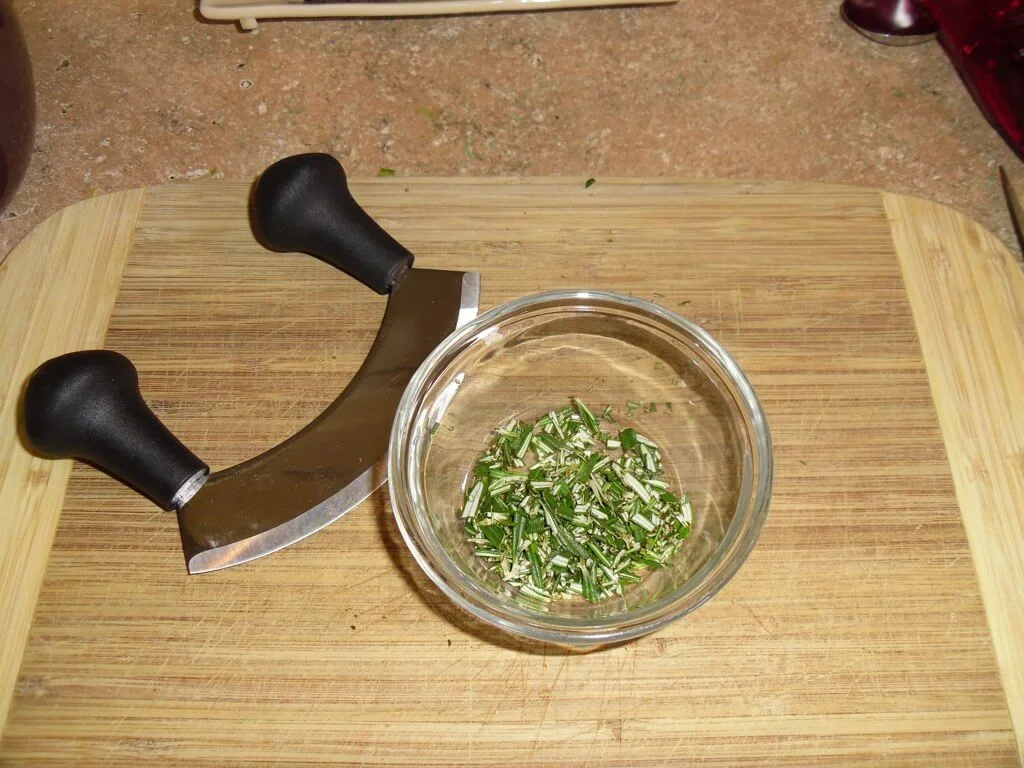
Cooking with Rosemary and Recipes
Rosemary elevates the taste of many dishes, from starters and entrees to sweets and drinks. Its fragrant, needle-like leaves add a unique flavor and aroma to meals. Here are some Rosemary recipes to try:
Rosemary Roasted Potatoes
A classic dish that pairs Rosemary with potatoes, creating a delicious and aromatic side dish.
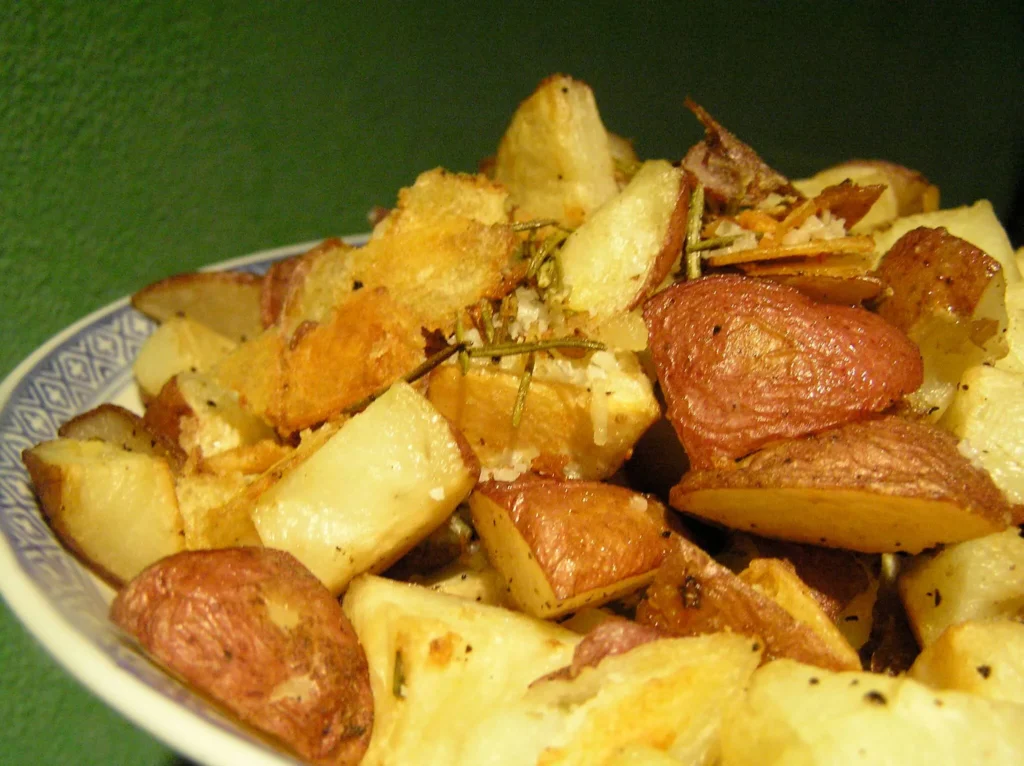
Garlic Rosemary White Bean Dip
This flavorful dip combines Rosemary with garlic and white beans, perfect for serving with crackers, pita chips, or fresh vegetables.

Rosemary Simple Syrup
You can use this sweet and aromatic syrup to enhance cocktails and lemonades or to drizzle over desserts such as ice cream and fruit.

Rosemary Tea
You can use this sweet and aromatic syrup to enhance cocktails and lemonades or to drizzle over desserts such as ice cream and fruit.
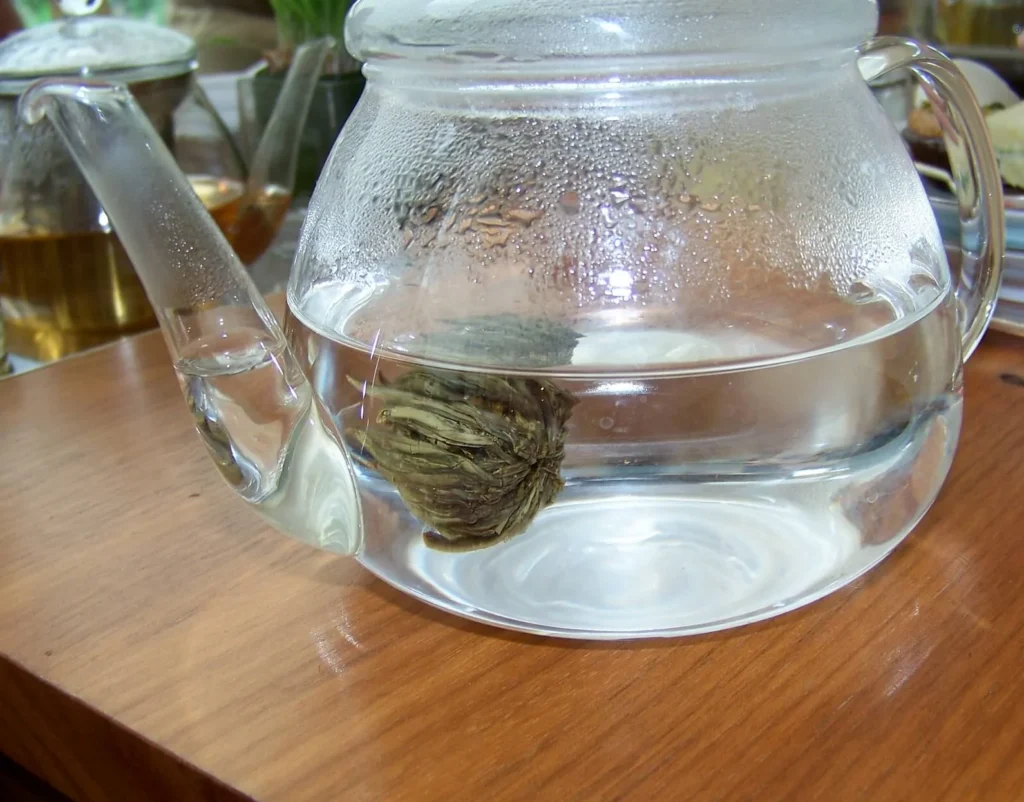
Benefits of Drinking Rosemary Tea
Drinking Rosemary tea may offer several health benefits, including:
- Antioxidant properties: Rosemary is rich in antioxidants, which help protect the body from oxidative damage and inflammation.
- Improved digestion: Rosemary tea can aid digestion by maintaining a balanced gut bacteria and minimizing inflammation.
- Better brain function: The scent of Rosemary correlates with better cognitive function, increased alertness, and enhanced concentration.
Drinking Rosemary Tea on an Empty Stomach
You can drink Rosemary tea anytime, even on an empty stomach. Yet, paying attention to how your body reacts and modifying your intake as needed is crucial. If you experience discomfort or side effects, consider drinking the tea after a meal or consulting a healthcare professional for guidance.
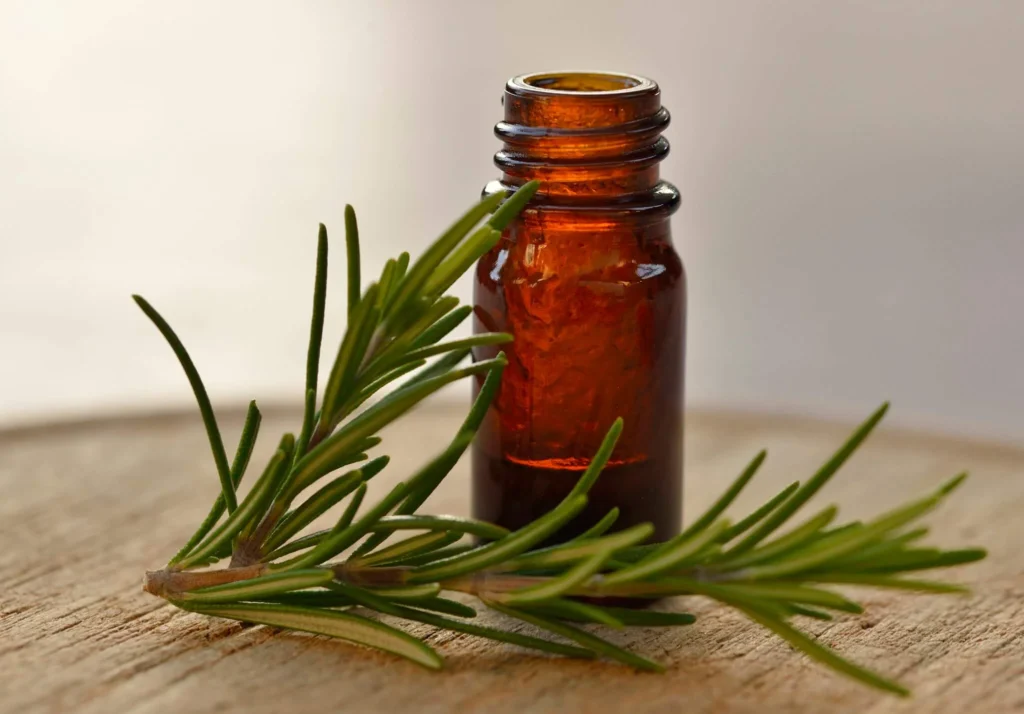
Rosemary Oil and Rosemary Essential Oil
Rosemary oil has various benefits, including supporting hair growth, improving cognitive function, and offering antimicrobial properties. Rosemary essential oil is the purest form of Rosemary oil, while Rosemary leaf extract is obtained from the leaves and mixed with carrier oil. Rosemary essential oil is potent, so you should use it in limited amounts, typically with the assistance of a dropper. You can use it for aromatherapy, mix it into massages, or skincare products.
What is Rosemary Oil Used For?
Rosemary oil is derived from the Rosmarinus officinalis plant and is known for its various benefits, including supporting hair growth, improving cognitive function, and offering antimicrobial properties. Here are some of the uses of Rosemary oil:
- Improving Brain Function: Rosemary oil may enhance cognitive function, alertness, and concentration. You can breathe in its aroma or rub it straight onto your skin.
- Stimulating Hair Growth: Rosemary oil may stimulate growth by increasing blood circulation to hair follicles. You can rub it on the scalp.
- Relieving Pain: Rosemary oil has anti-inflammatory and pain-relieving properties. You can apply it directly to the impacted area.
- Repelling Bugs: Rosemary oil may repel specific bugs, such as mosquitoes and ticks.
- Easing Stress: When inhaled, Rosemary oil may offer anti-stress, anti-anxiety, and mood-boosting effects, positively impacting your mental well-being.
- Increasing Digestion: Rosemary oil can aid digestion by fostering a balanced gut flora and curbing inflammation.
- Shrinking Pores: Rosemary oil is a natural astringent that helps shrink pores to tighten the appearance of your complexion.
- Protecting Skin: Rosemary oil is a natural antioxidant. It covers the skin against harmful environmental elements called free radicals that hurt skin cells’ DNA, leading to fine lines and skin damage.
Can Rosemary Oil Be Used for Cooking?
Absolutely, you can use Rosemary oil in cooking. It’s a favored ingredient in Mediterranean dishes, enhancing flavors like roasted chicken, potatoes, and vegetables. Here are some recipes for making Rosemary-infused oil:
- Fresh Herb Infused Rosemary Oil: This recipe calls for blending fresh Rosemary leaves with extra virgin olive oil, producing an extremely fragrant oil suitable for various dishes.
- Rosemary Infused Olive Oil: In this recipe, you’ll mix olive oil with fresh Rosemary leaves and garlic cloves, crafting a savory and scented oil perfect for salads, marinades, and beyond.
- Rosemary-Infused Oil: In this recipe, you’ll heat olive oil with fresh Rosemary sprigs, yielding a flavorful and aromatic oil suitable for various dishes.
When using Rosemary oil for cooking, it is vital to use it in moderation, as it has a strong flavor and aroma. It is also essential to use high-quality oil and fresh Rosemary leaves or sprigs for the best results. Keeping the oil in a cool, shaded location is also advisable to maintain its taste and excellence.
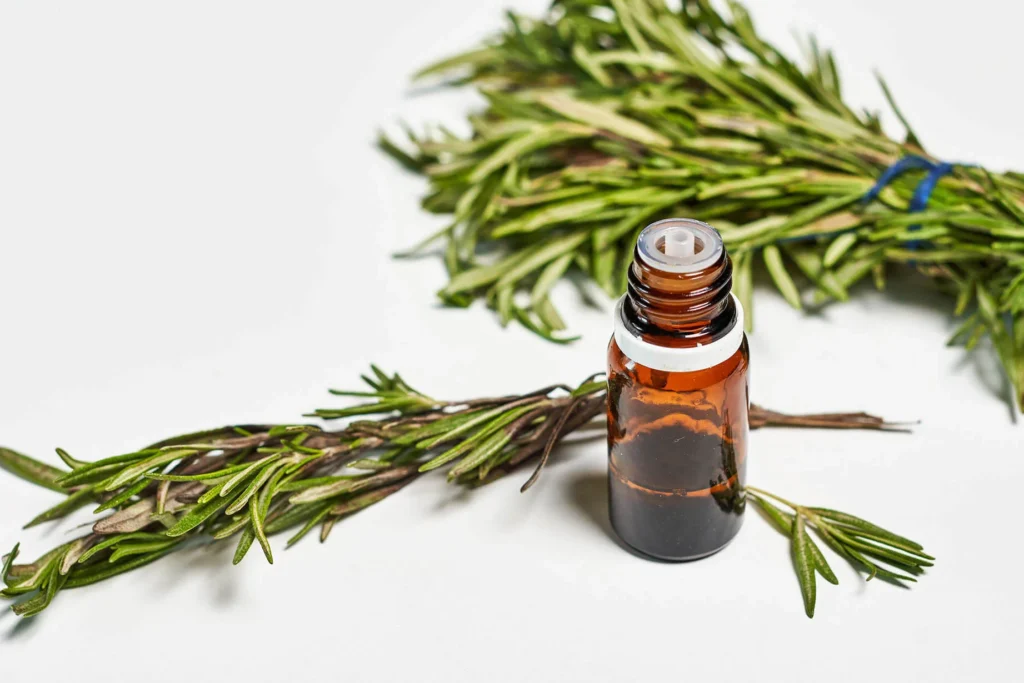
Rosemary Hair Oil
Rosemary hair oil has been traditionally used to stimulate hair growth, prevent premature graying, and reduce dandruff. It may also help with dry or itchy scalp. Scientific data shows that Rosemary oil stimulates the scalp and can help with hair growth. The oil’s effectiveness is attributed to its anti-inflammatory properties, nerve growth promotion, and circulation improvement.
Blend Rosemary oil on your hair with a carrier oil like jojoba to avoid possible irritations or unwanted outcomes. If you have sensitive skin or hair, consult a healthcare professional before using Rosemary oil for hair care.
Mielle Rosemary Oil
Mielle Organics Rosemary Mint Scalp & Hair Strengthening Oil targets afro and curly hair types. It’s packed with enriching elements such as Rosemary, avocado, and castor oil that fortify and hydrate the hair. The oil emits a rejuvenating and energizing aroma and works well with protective hairstyles like braids and weaves. The product is infused with biotin and features more than 30 essential oils.
Usage and Effectiveness
You can use Mielle Rosemary Oil for everyday hair maintenance or specific scalp therapies. Users have reported positive results, such as hair regrowth and mild dandruff relief. However, the product may not be suitable for all hair types, and it is essential to consider your hair’s porosity and texture before using it.
Ingredients
Mielle Rosemary Oil contains various ingredients, including soybean oil, castor seed oil, Rosemary leaf oil, and other essential oils. The oil contains biotin, renowned for enhancing hair growth and strength.
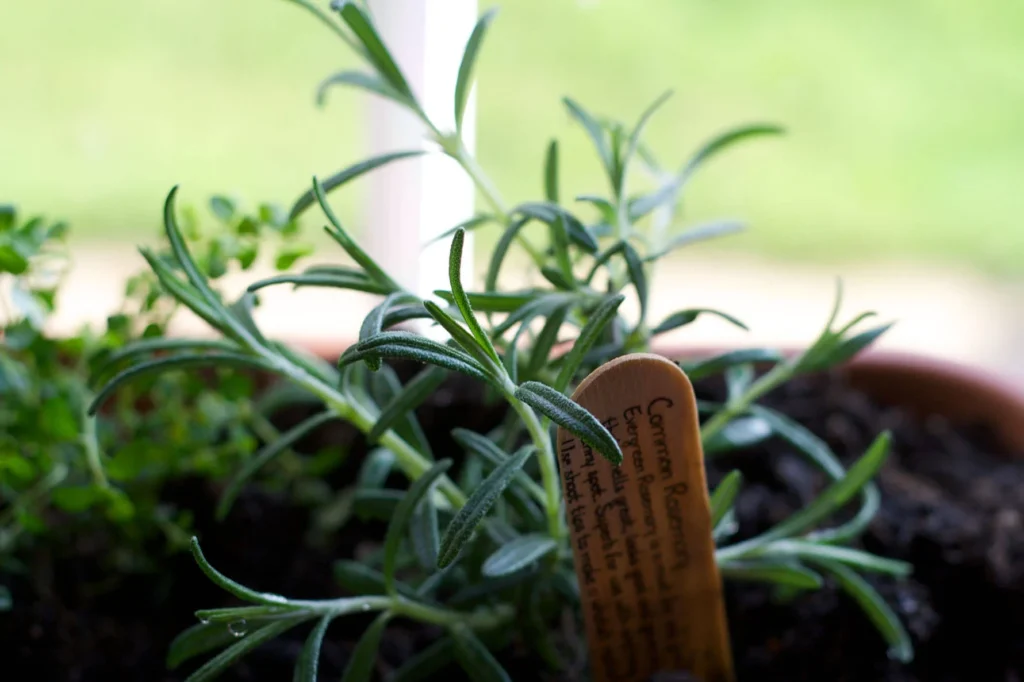
The 10 Most Frequently Asked Questions About Rosemary
Can Rosemary oil grow hair?
Rosemary oil contains carnosic acid, which may help repair tissue damage and improve cell turnover, promoting hair growth. However, more research is needed to confirm its effectiveness on humans.
Can Rosemary be used for skin care?
Yes, Rosemary extract might help protect the skin from sun damage. It contains carnosic acid, a compound known for its powerful antioxidant properties. Studies have found that carnosic acid can help protect the skin from UV radiation and slow the growth of cancer cells in the body.
Why do people plant Rosemary by the garden gate?
Rosemary is often planted by the garden gate as a symbol of remembrance and to ward off evil spirits.
Are Rosemary and Lavender related?
Yes, Rosemary and Lavender are both members of the Lamiaceae family and have similar growing requirements and characteristics.
Are Rosemary flowers edible?
Yes, Rosemary flowers are edible and can be used in cooking or as a garnish.
Are Rosemary plants perennials?
Yes, Rosemary is a perennial plant that can live for several years if properly cared for.
Is Rosemary for remembrance?
Absolutely, many cultures link Rosemary with memory and love, viewing it as a symbol of remembrance.
Is Rosemary Safe for Pets?
Rosemary can be toxic to pets if ingested in large quantities. It’s best to keep rosemary plants out of reach of pets.
How Do You Preserve Rosemary?
You can preserve it by drying the leaves, freezing them in ice cube trays with water or oil, or infusing them into vinegar or oil. Store dried rosemary in airtight containers away from heat in a dark spot.
What Are the Health Benefits of Rosemary?
Rosemary contains antioxidants and anti-inflammatory compounds that could potentially enhance digestion, boost memory and focus, and promote overall immune system function.
Hello! I wanted to drop by and say that I really enjoyed this blog post. Your writing is always so clear and concise, and you have a talent for making complex topics easy to understand. Thank you for sharing your insights with us. I’m looking forward to your next post!
Thank you Fernando.